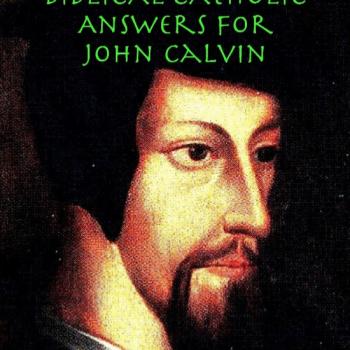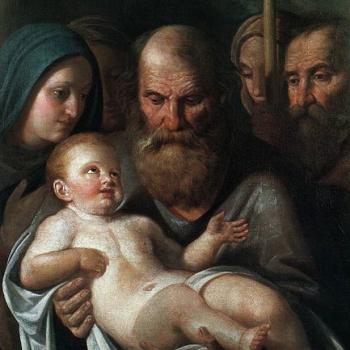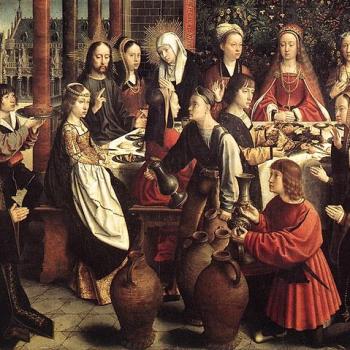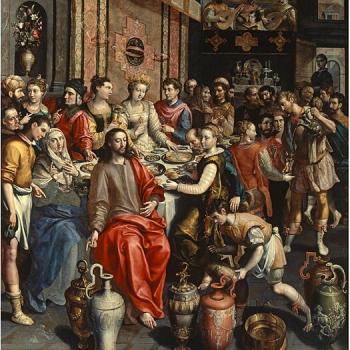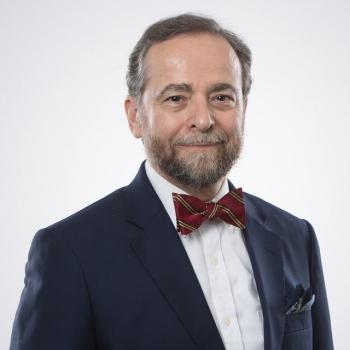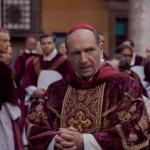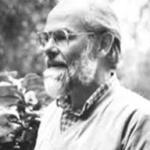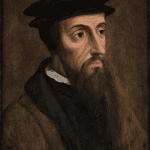Jason Engwer is a Protestant and anti-Catholic apologist, who is the main writer at the Triablogue site. I’ve had many debates with him; well, until he decided to stop interacting, some years ago now. One can see them by searching his name on my Anti-Catholicism web page. His words will be in blue.
*****
Recently, it struck me how Jason loves the argument from silence when it comes to the Church fathers and Mary’s Assumption, but then he doesn’t like it at all with regard to St. Paul hardly mentioning Jesus’ miracles, and never mentioning John the Baptist. Why the difference? I’d like to explore this a bit and make some semi-satirical analogies. Here is Jason decrying the argument from silence when atheists use it against St. Paul:
Skeptics occasionally object to the historicity of Jesus’ miracles on the basis that they aren’t mentioned in Paul’s letters.. . . We have no reason to expect Paul to have mentioned Jesus’ miracles. There are places where he could have mentioned them, but I see no way to argue that he should have brought them up in the manner under consideration. Watch the video clip here for some comments from Tim McGrew on the argument from silence. Jesus’ baptism by John the Baptist is widely accepted as historical, yet Paul not only doesn’t mention it, but also doesn’t even mention John the Baptist (if we define a mentioning of such things the same way critics are defining a mentioning of Jesus’ miracles). And John the Baptist has a large role in the gospels. (Why doesn’t Paul mention Jesus’ miracles?, 3-6-22)
Interesting. I shall now apply this reasoning to Mary, by way of analogy:
Protestants frequently object to the historicity of Mary’s Assumption on the basis that it isn’t mentioned in the earlier Church fathers .. . . We have no reason to expect them to have mentioned her Assumption. There are places where they could have mentioned it, but I see no way to argue that they should have brought it up in the manner under consideration. Watch the video clip here for some comments from Tim McGrew on the argument from silence. Mary’s Assumption is widely accepted by Catholics as historical, yet the earlier Church fathers don’t mention it. And Mary has a large role in salvation history.
In an earlier paper, I also turned Jason’s argument against Mary back upon him, by analogy:
Sola Scriptura
Many patristic sources highly praise Scripture as God’s Word and provide extensive biblical texts in favor of the Christian doctrines that they defend. But no early patristic source says anything about the definition and exact nature of sola Scriptura as the rule of faith [as provided by, e.g., James White, Normal Geisler, and Keith Mathison]. Yet this is the Protestant rule of faith, and entire basis of its self-understood authority. How likely is it that all of these sources, commenting in so many different contexts, would all refrain from mentioning the definition and exact nature of sola Scriptura as the rule of faith, even though they [so we are told, supposedly] knew of it, and believed it? If these early Christians held to sola Scriptura as the rule of faith as present-day Protestants do, or even close to so high a view, you’d expect them to cite its definition quite prominently. Instead, they don’t mention it at all.
The New Testament Canon
No early patristic source provides the complete list of the New Testament biblical canon until St. Athanasius in 367. Yet this is part and parcel of the Protestant rule of faith, sola Scriptura, [one can’t grant the Bible alone sole infallible authority unless one knows exactly what it is] and entire basis of its self-understood authority. How likely is it that all of these sources, commenting in so many different contexts, would all refrain [prior to 367] from mentioning the exact parameters of the canon of the New Testament, even though they [so we are told, supposedly] knew of it? If these early Christians held to the 27-book New Testament canon, as present-day Protestants do, or even close to such a view, you’d expect them to mention this quite prominently. Instead, they don’t mention it at all. And several of these fathers included books in the New Testament canon that no Christian today includes.
[the canon of the New Testament wasn’t finalized until 397 A.D.]
Faith Alone (sola fide)
Even foundational and distinctive Protestant doctrines, such as the notion of Faith Alone or imputed, extrinsic, forensic justification, are well-nigh nonexistent all through Church history until Luther’s arrival on the scene, as, for example, prominent Protestant apologist Norman Geisler recently freely admitted:
[O]ne can be saved without believing that imputed righteousness (or forensic justification) is an essential part of the true gospel. Otherwise, few people were saved between the time of the apostle Paul and the Reformation, since scarcely anyone taught imputed righteousness (or forensic justification) during that period! (Norman L. Geisler and Ralph E. MacKenzie, Roman Catholics and Evangelicals: Agreements and Differences, Grand Rapids, Michigan: Baker Books, 1995, 503)
There are other examples, too:
Original Sin
Cardinal Newman cited sixteen Church fathers who expressed the doctrine of purgatory in some form, and noted that the doctrine achieved “almost a consensus of the first four ages of the Church.” Yet patristic teaching on original sin is far less apparent, and it didn’t even appear in the Apostles’ Creed or the Nicene Creed.
Deity of Christ and the Holy Trinity
The divinity of Christ was dogmatically proclaimed only at the “late” date of 325, the fully worked-out doctrine of the Holy Trinity in 381, and the Two Natures of Christ (God and Man) in 451, all in Ecumenical Councils which are accepted by most Protestants.
Why is it that Protestants have no problem whatever accepting all of the above (including their two famous “pillars”: sola Scriptura and sola fide) even though patristic evidence is remarkably — sometimes literally totally — lacking? Perhaps some Protestant will educate us as to why the glaring double standard and application of “patristic absence” to the Marian doctrines but not to Protestant distinctives. I won’t hold my breath. No one has explained it to me yet in my 31 years since becoming a Catholic.
I provide many articles that deal with the question of the alleged total “absence” of the Assumption of Mary from Holy Scripture, too (see my Blessed Virgin Mary web page and search for “Assumption”). A fairly strong case can be made for it from the Bible alone. In fact, there is more about Mary’s Assumption in Scripture than there is about the biblical canon and the definition and exact nature of sola Scriptura: that is, nothing at all in both cases; zip, zero, zilch.
I don’t think the Assumption is biblically implausible in the least. All it’s saying is that Mary received her resurrected body first among the saints (all of whom will eventually do the same thing). The mother of Jesus our Lord and Savior didn’t have to undergo the decay of death.
***
Practical Matters: Perhaps some of my 4,000+ free online articles (the most comprehensive “one-stop” Catholic apologetics site) or fifty books have helped you (by God’s grace) to decide to become Catholic or to return to the Church, or better understand some doctrines and why we believe them.
Or you may believe my work is worthy to support for the purpose of apologetics and evangelism in general. If so, please seriously consider a much-needed financial contribution. I’m always in need of more funds: especially monthly support. “The laborer is worthy of his wages” (1 Tim 5:18, NKJV). 1 December 2021 was my 20th anniversary as a full-time Catholic apologist, and February 2022 marked the 25th anniversary of my blog.
PayPal donations are the easiest: just send to my email address: apologistdave@gmail.com. You’ll see the term “Catholic Used Book Service”, which is my old side-business. To learn about the different methods of contributing, including 100% tax deduction, etc., see my page: About Catholic Apologist Dave Armstrong / Donation Information. Thanks a million from the bottom of my heart!
***
Photo credit: The Assumption of the Virgin, by Charles Le Brun (1619-1690) [public domain / Wikimedia Commons]
***
Summary: Jason Engwer argues that an argument from silence doesn’t work with Paul regarding Jesus’ miracles. I apply his same reasoning analogically to Mary’s Assumption.







